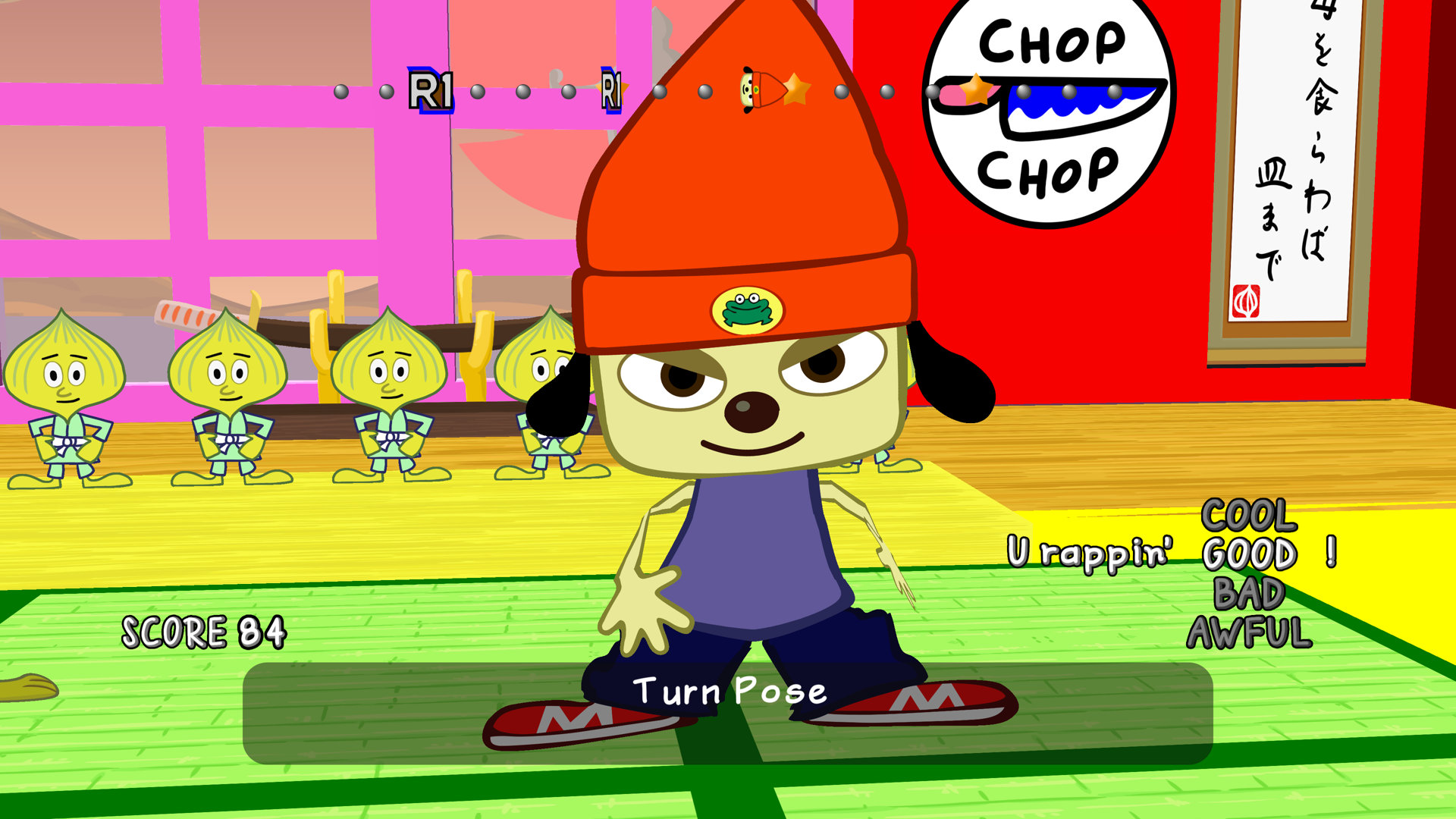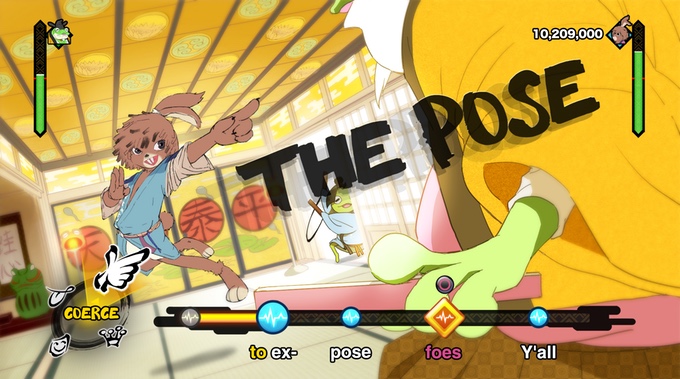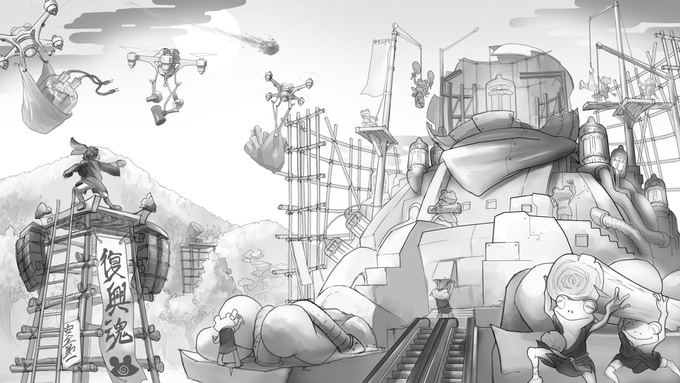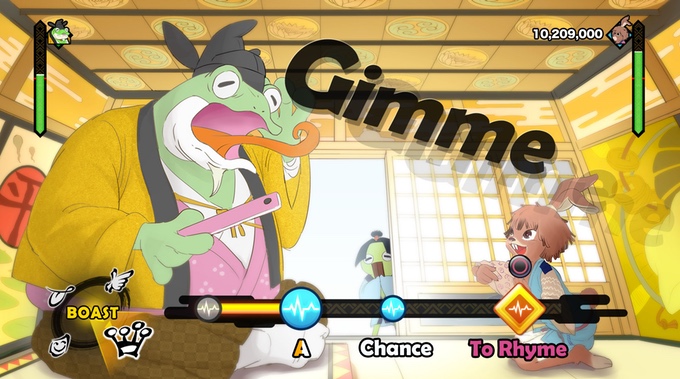Yesterday, Cliqist Editor, Writer and Strength of Music Embracer Joanna Mueller extolled the virtues of Project Rap Rabbit, a new Kickstarter campaign from the grandfather of the rhythm game. Modeled after Parappa the Rapper, fitting considering they share a creator, Project Rap Rabbit promises to revolution the non-plastic instrument music rhythm game. This is no nostalgia trip, this is a game that, on paper, revolutionizes the genre.
This is something I’ve begged for from Kickstarter campaigns for years; a game that doesn’t chain itself to its own sense of nostalgia. Usually these once pioneering developers are content to keep making the same game until the end of time. That doesn’t appear to be the case with Masaya Matsuura. While Project Rap Rabbit looks like it could be a great game, there are some serious reservations about the Kickstarter campaign itself that I can’t be as happy about.
Déjà Vu (Uptown Baby).
This whole campaign gives off some familiar vibes. Feel free to stop reading if you’ve heard this before: a legendary game developer spends years at one company, pioneering a genre or franchise. Then, for whatever reason, that franchise disappears out of nowhere, despite its success and popularity. This eventually causes the legendary developer to leave. They form their own independent company, and using Kickstarter, vow to re-create the games they were known for. The Kickstarter campaign turns out to be a wild success, even though there are clear red flags with said campaign.
If you said “Mighty No. 9,” congratulations, you should try getting on Jeopardy some day. No matter where you look, Project Rap Rabbit stinks of another Mighty No. 9 situation.
Mind Playing Tricks on Me.
At the risk of repeating myself, look at the two Kickstarter campaigns. They each feature a legendary developer in Keiji Inafune and Masaya Matsuura, both known for pioneering the franchises they worked with. Both campaigns promised to be the spiritual successor to those developers previous work, which had vanished for years, but still promised to spice things up with new elements. The two campaigns received a ton of press, and backers were quick to throw their money at the respective campaigns. But neither actually showed any gameplay, just screenshots and gameplay mock-ups, an issue which nobody seemed to notice or mind.
If you want another, similar comparison, look no further than Yooka-Laylee. Its Kickstarter was roughly the same deal, though the folks at Playontic did at least have gameplay footage to share.
Mighty No. 9 went on to be known as the biggest disaster in Kickstarter history. A fairer reception was given to Yooka-Laylee, though it’s still considered mediocre at best. As much as I’d like to say that won’t happen to Project Rap Rabbit, or that it’s hyperbolic to even suggest that as a possibility, the fact is, we just don’t know.
Kickstarter campaigns are always a gamble. Fewer people are treating crowdfunding sites as pre-orders now than ever before. However, it’s not uncommon to see backers complaining of “scams” which just means they don’t like their game. That’s just the nature of consumerism. It doesn’t help when a developer talks down the risk of crowdfunding to the degree Matsuura and company have.
“[…] we have gone to great lengths in our planning and early work to minimize this risk. Between the shared experience of developers NanaOn-Sha and iNiS J, and publisher PQube’s platform holder relationships and merchandise production know-how, we’re confident that all the pieces are in place to ship Project Rap Rabbit, along with all physical backer rewards, by August 2018.”
They’re promising a delay is extremely unlikely. They don’t even entertain the notion that cancellation could happen at any time, for any reason. They’ve got a publisher attached to the project (as did Inafune’s Red Ash Kickstarter campaign) but even that isn’t the guarantee it’s being touted as.
The Message.
When you back a Kickstarter campaign, you have to strip away the fame of the people involved, and the legacy of whatever they made before. You have to look at the pitch itself, and that includes things like gameplay demonstrations. Without any video of gameplay, you have to rely on mock-ups which may not look anything like the final game. Such was the case for Mighty No. 9, and even Bloodstained: Ritual of the Night to a lesser extent. You should know exactly what you’re backing, and look for a developer who’s honest about the risks involved.
Project Rap Rabbit sounds like it could be a good game, one day. But I’m not confident about that today, especially when I have no idea what the game will even look like. If a campaign doesn’t show any gameplay, undersells the inherent risk of crowdfunding, and removes its own stretch goals a day after launch, it deserves a closer look, not an automatic payment.







